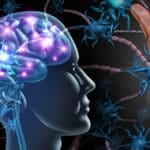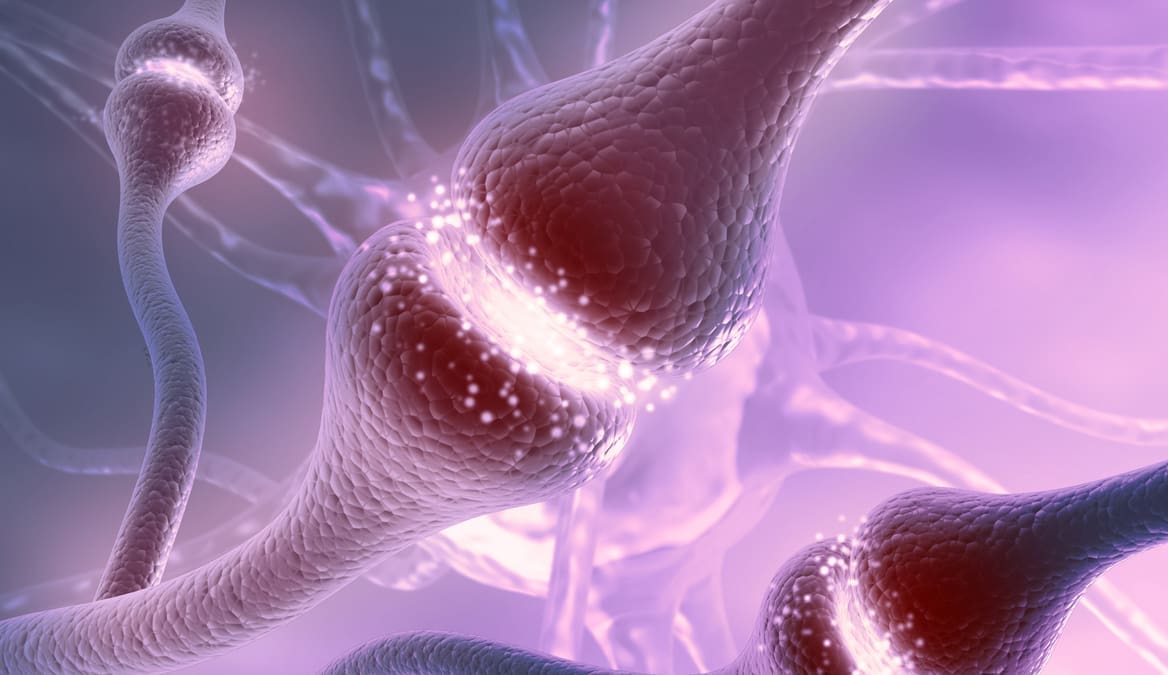You’ve probably heard that depression is often linked to an imbalance of serotonin and dopamine in the brain. But what are these chemicals and what does this imbalance mean? And, perhaps most importantly, what can we do to help fix these imbalances?
What Is a Neurotransmitter?
To understand chemical imbalances in the brain, it’s important first to understand a little bit of neuroscience. Essentially, our brain communicates with our body through chemical substances called neurotransmitters, which are capable of sending internal messages to various cells and muscles. These messages are responsible for processes that we might not think twice about, such as breathing, as well as more complex tasks, such as moods.
Neurotransmitters are passed through our brain via passageways called synapses. The synapses are responsible for passing chemical messages, such as neurotransmitters, between neurons.
Neurons are specialized cells that process information. There are many different kinds of neurons in our brain, ranging from neurons that control our motor functions to those that interpret the data we receive from our five senses.
Some neurons in our brain communicate well with one another via their synapses. Other neurons have trouble having productive conversations with each other. This variance in the neurons’ ability to communicate is called synaptic plasticity. Synaptic plasticity can change over time, becoming either better or worse.
To sum up: there are many different neurons inside our brain that regulate how we process information. These neurons send messages to one another through chemicals called neurotransmitters. Synapses are responsible for delivering the neurotransmitters from one neuron to another. Synaptic plasticity refers to the variance in how well different neurons communicate with one another.
What Are Serotonin and Dopamine?
Serotonin is one type of neurotransmitter. This neurotransmitter plays a role in digestion, sexual function, bone density, blood clotting, and emotional regulation. When you have the right amount of serotonin inside your body, it is easier to have stable moods and a sense of well-being.
Dopamine, another type of neurotransmitter, affects how we experience pleasure. When we do something that we enjoy, dopamine helps to activate the pleasure center inside our brains.
Dopamine helps us enjoy not just life’s simple pleasures, but also helps us stay motivated. When we have the right amount of dopamine in our systems, we’re more likely to experience our pleasure center “lighting up” when we accomplish something.
How Are Serotonin and Dopamine Linked to Depression?
It is common for people with depression to have low levels of dopamine. If you are depressed, it is often difficult to motivate yourself to do things, be it routine tasks like going to work or social activities like spending time with your family. You probably also have trouble experiencing pleasure even when doing activities you used to love.
The research surrounding serotonin and depression is more complicated. In the 1950s, the prevailing theory was that low levels of serotonin led to depression. This hypothesis came about initially because iproniazid, a drug originally designed to treat tuberculosis, was found to greatly improve patients’ moods, to the point of near-euphoria in many. Scientists speculated that this was because iproniazid increased the presence of neurotransmitters such as serotonin. This theory was lent further weight over the next few decades by other evidence, such as how autopsies of suicide victims had less serotonin in their brains than people who died by other means.
Fast forward 70 years later, and most experts agree that people who are depressed do not necessarily have lower levels of serotonin than everyone else. However, an increase in serotonin levels has been shown to be effective in many patients with depression. In the short-term, this increase in serotonin does help with mood stabilization and feelings of well-being. But the reason this increase in serotonin is effective in the long-term is that serotonin helps to build new, and to strengthen existing, neural pathways related to emotions. In other words, it’s not necessarily the increased “hit” of serotonin that helps people with depression experience relief, but rather the fact that areas previously underused in their brains are reinvigorated.
How Does TMS Help Serotonin and Dopamine Levels?
TMS uses an electromagnetic field to provide an electrical impulse to neurons, including those responsible for releasing neurotransmitters like serotonin and dopamine.
You might think that this sounds similar to how antidepressants work, but antidepressants actually focus on the chemical parts in the brain. TMS, on the other hand, specifically targets the electrical activity within neurons.
TMS is capable of actively targeting and engaging neurotransmitters in your brain—primarily in the prefrontal cortex–that often cannot function normally when you are depressed. For instance, when you are depressed, you are often more prone to thinking negatively about yourself and find it more difficult to silence those negative self-reflections to focus on something else.
Dopamine is one of the neurotransmitters in the prefrontal cortex region of the brain that TMS can help regulate. Several research studies have demonstrated that TMS normalizes your serotonin and dopamine levels and activity, thereby improving depressive symptoms, including negative ruminations and poor concentration.
Not only does it enhance the release of serotonin and dopamine, but TMS also helps to strengthen the synaptic plasticity of your brain. Remember that synaptic plasticity refers to how well neurons communicate with one another. The communication between certain neurons is often not fully effective in the brains of individuals with depression, including the prefrontal cortex.
By strengthening neuronal passageways, TMS helps your brain to function more healthily both immediately during the treatment course and in the long term.
Can TMS Help Me?
TMS is an effective treatment for depression and works in multiple ways, including by strengthening the release and functioning of serotonin and dopamine. These two neurotransmitters are very involved in mood regulation, pleasure, and motivation, all things that people with depression often struggle with, and all things that TMS can improve in both the short- and long-term. To learn more about TMS, visit our FAQ page or contact us today. We are happy to help you decide if TMS is the right choice for you or your loved one.



